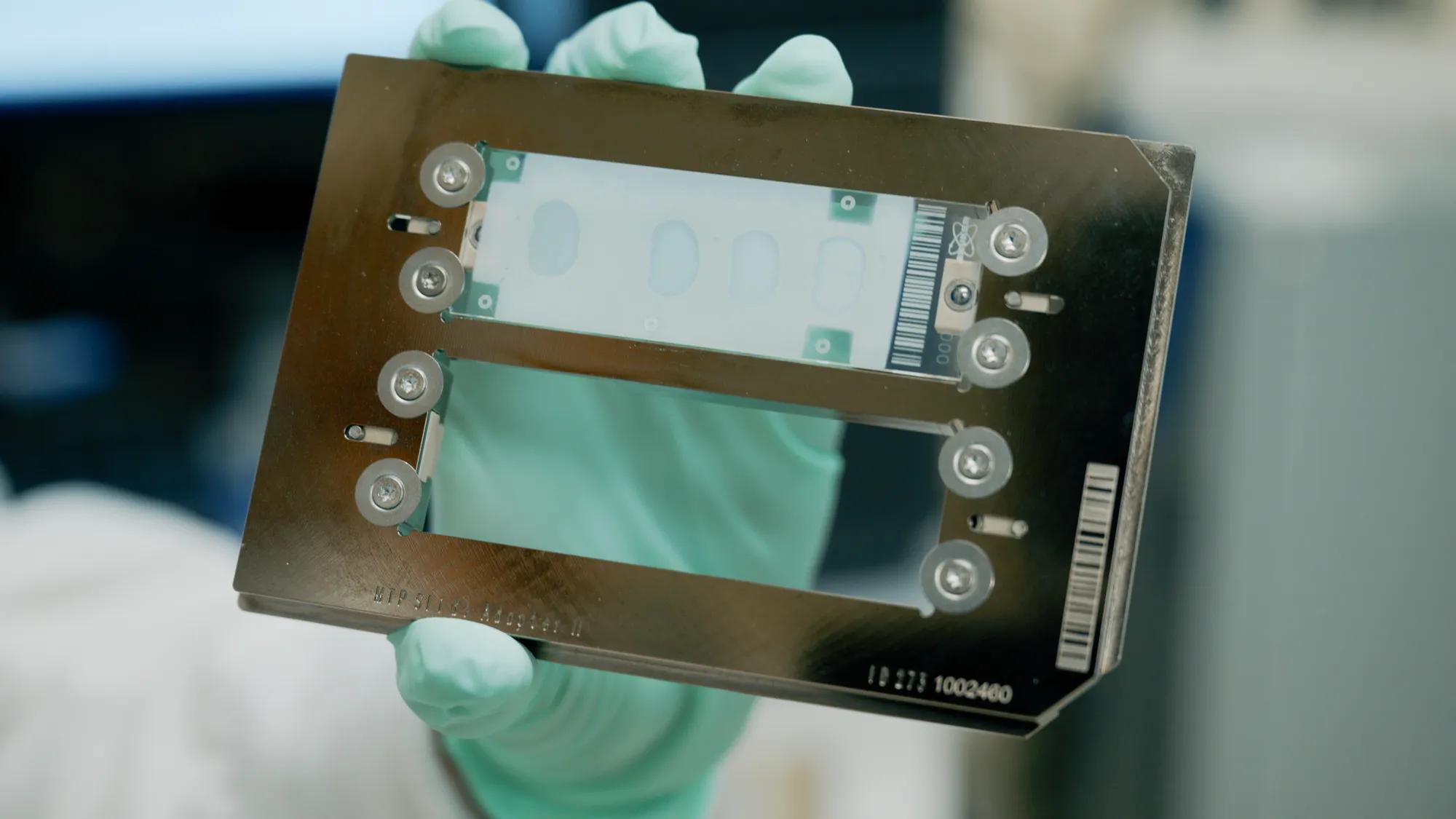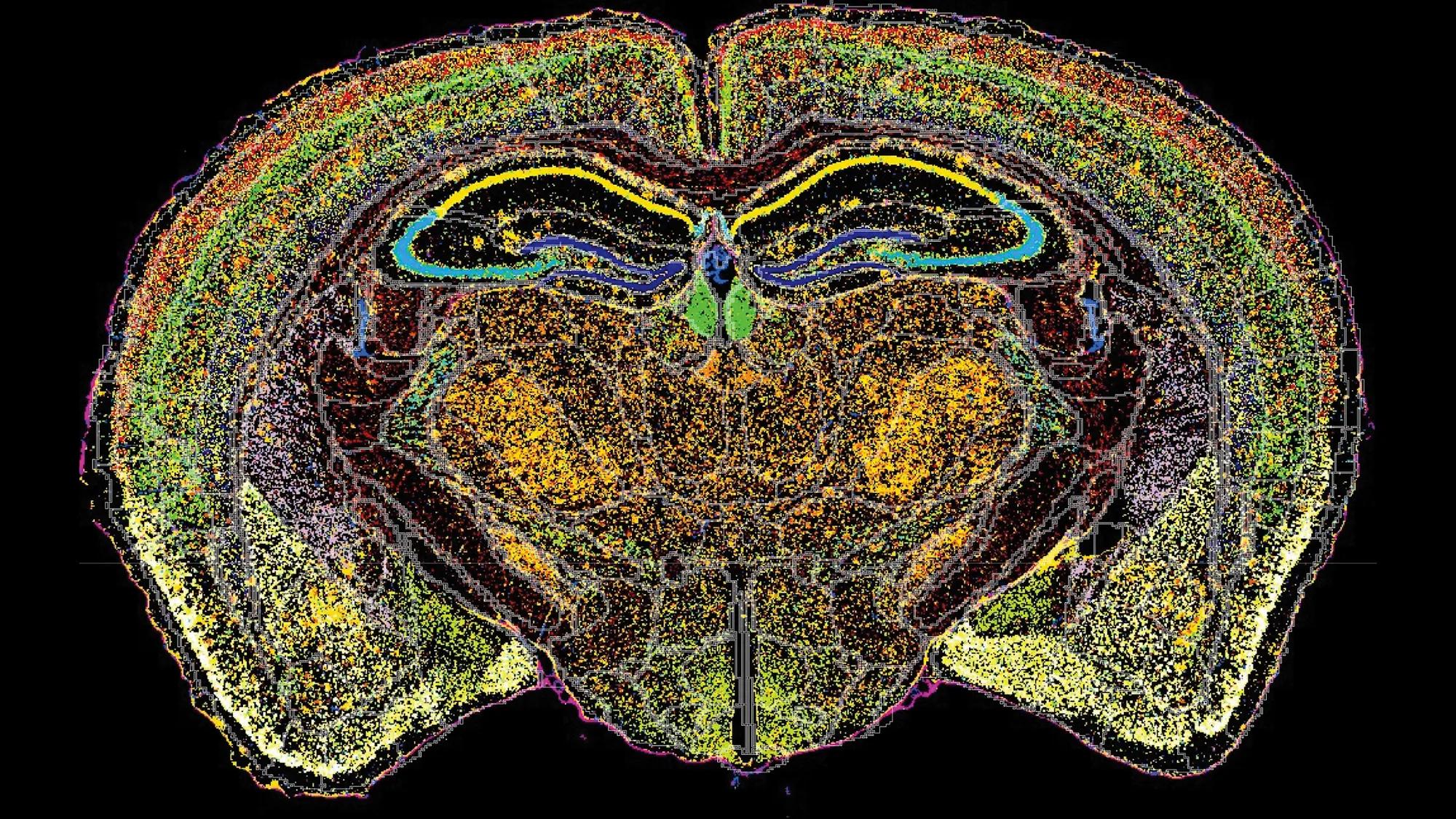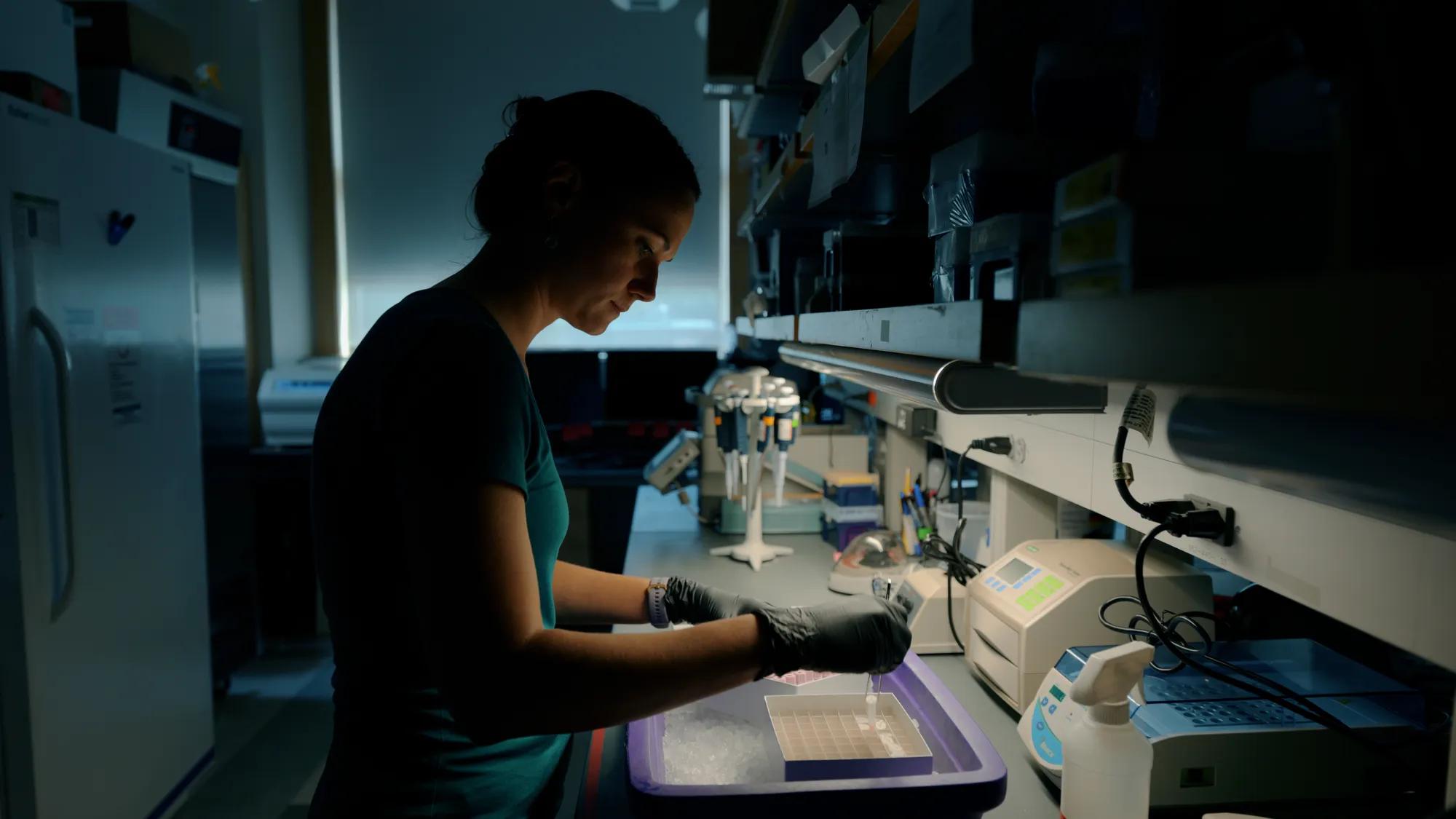How does the brain stay sharp as we age? And what happens when it doesn’t? At The Jackson Laboratory, neuroscientist Kristen O’Connell is tackling these questions head-on. Her research explores how different regions of the brain communicate, how that communication breaks down in diseases like Alzheimer’s, and how that loss affects memory and identity. It’s a complex puzzle, but one she’s determined to solve.
O’Connell, an associate professor, is especially interested in how proteins and lipids help brain cells function and talk to each other. In her lab, she studies these tiny molecules cell-by-cell to understand how they support memory and cognition, and what goes wrong when they don’t.
Take lipids, for example—the soft, fatty molecules that help keep brain cells connected. Neurons often get most of the attention, but their real power comes from the tiny gaps, called synapses, where they pass messages to each other. Lipids act like padding around these connections, keeping them stable and strong. When that padding wears down, the connections falter, which can lead to the memory loss and cognitive problems seen in dementia, including Alzheimer’s disease.
She’s interested in the concept of “neuroplasticity”—the brain’s ability to change and reorganize—and, through her research, hopes to illuminate the intricate mechanisms behind this process. “Genes don’t always tell the full story,” O’Connell says. Especially in aging brains, she points out, the amount of protein doesn’t always match the gene activity. That mismatch might be a key reason why brain function declines with age.
She’s currently working with JAX’s Protein Sciences service team to accelerate this research utilizing cutting-edge technology: a state-of-the-art mass spectrometry system that allows scientists to analyze proteins present within individual cells, something that was nearly impossible just a few years ago. JAX is one of only a handful of institutions with access to this tool, and it’s expediting discoveries that could lead to new diagnostics and therapies.
More than research
O’Connell’s work is deeply personal. Her grandmother, who supported her early interest in science, lived with Alzheimer’s for nearly 20 years before passing away in 2014. Watching her symptoms increase over time left a lasting impression on O’Connell, and has a big influence on the research she conducts today.
She points out that Alzheimer’s and other dementias are about much more than just memory loss. These diseases affect who a person is—their personality, their relationships and the way they move through the world. As a researcher, she keeps those patients and their families in mind as she studies the condition. That perspective drives her collaborative efforts to develop better models of Alzheimer’s and related dementias, ones that reflect the full complexity of the disease and are better suited to addressing its many facets.
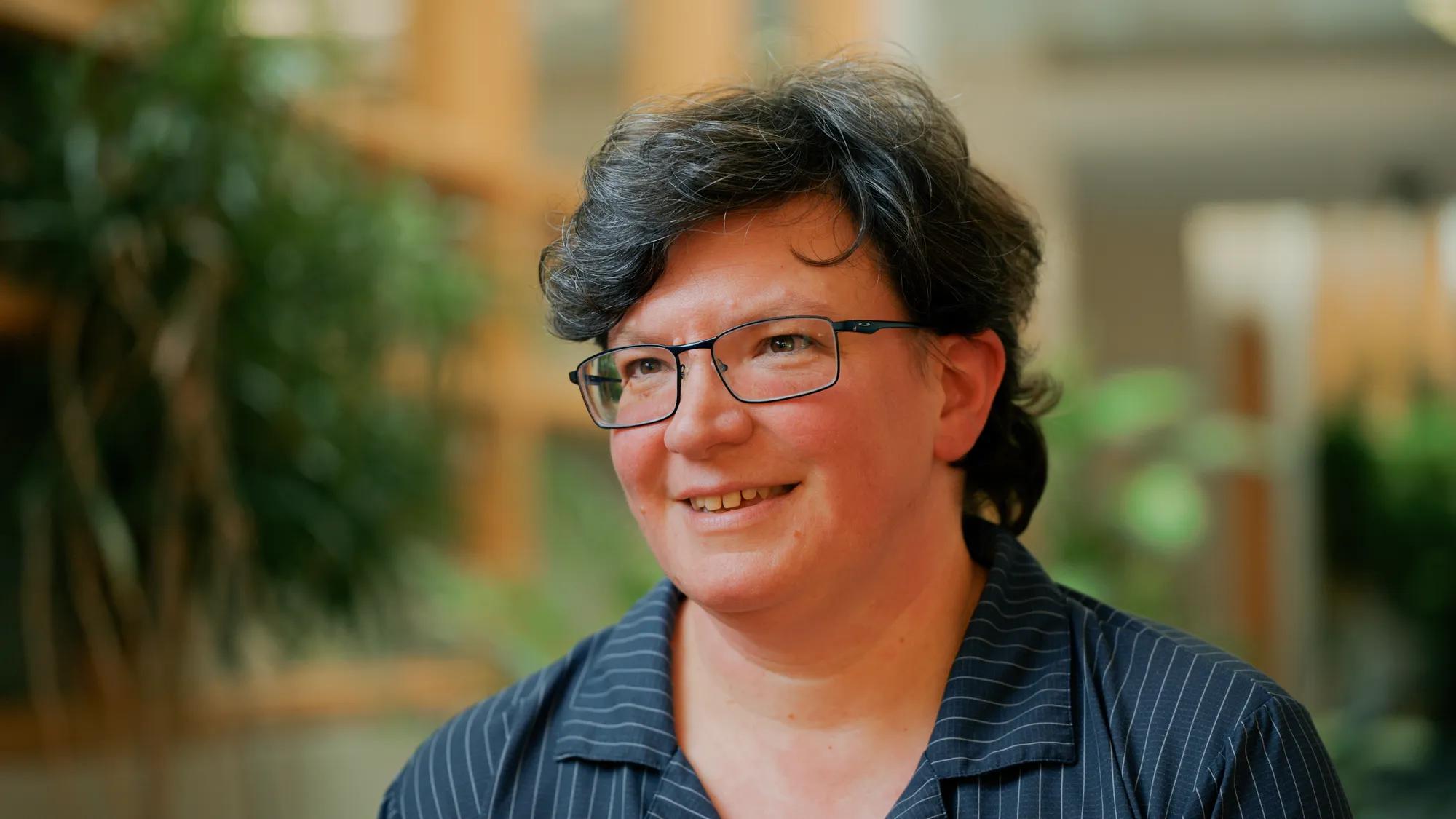
It just feels like we're closer than we ever have been. The more of these gaps that we can fill in, the faster we're going to get to a real disease - modifying therapy.”
- Kristen O'Connell
What’s next
In the next five to 10 years, O’Connell hopes to fill in critical gaps in our understanding of lipids, proteins, and metabolites in the brain with a goal of providing real answers for patients and families affected by these neurodegenerative diseases. “We can see how the brain works with details we have never been able to see before.”
Learn more
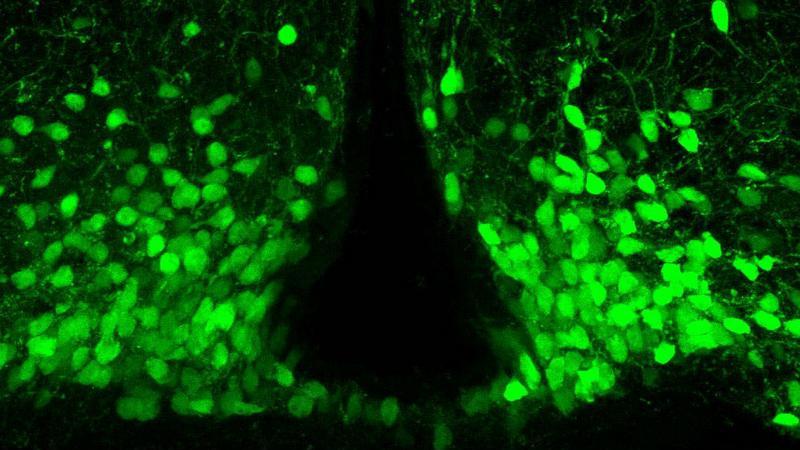
The O'Connell Lab at JAX
The overarching goal of my NIH-funded research program is to understand the neural control of appetite and how diet and body weight affect the excitability of the neurons in key CNS circuits responsible for food intake.
View more
JAX in Motion
JAX in Motion seeks to inspire and move audiences through a series of short documentaries. Presenting the groundbreaking research and discoveries being made by the exceptional scientific researchers at The Jackson Laboratory.
View more
